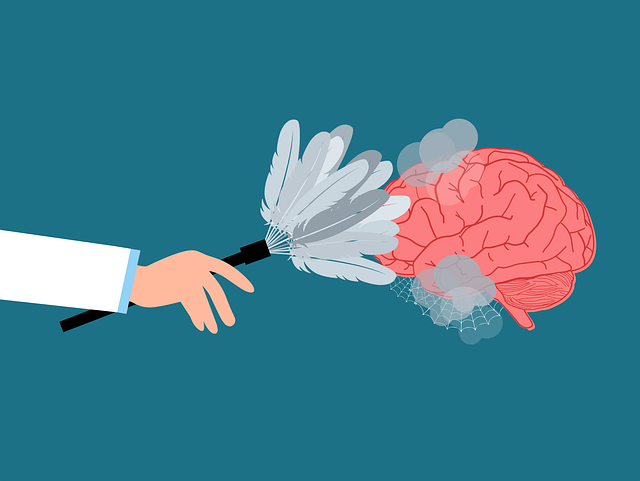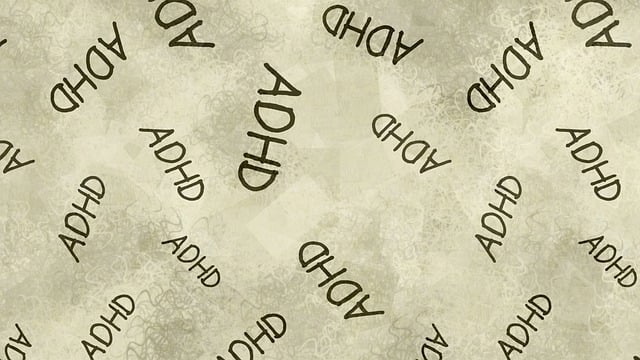Englewood, facing high poverty and trauma rates, prioritizes community mental wellness through Englewood Abuse Survivors Therapy (EAST). EAST leads with therapeutic support and creative programs like the Mental Wellness Podcast Series and Community Outreach Program, targeting barriers to resources. Their nuanced approach emphasizes safe environments for healing through storytelling and peer support, integrating evidence-based practices. Strong partnerships with local organizations, schools, and faith groups amplify resources, fostering holistic support. Tailored interventions include trauma healing, CBT, stress management workshops, and advocacy for systemic changes. Measuring success and sustainability involves clear goals, client feedback, and building resilient communities for long-term recovery.
Englewood, like many communities, faces challenges with abuse survivors in need of specialized support. Implementing community outreach programs is a vital step towards addressing these issues. This article explores the critical aspects of reaching and helping Englewood’s abuse survivors through therapy. We cover key strategies from understanding the local context to building partnerships and collaborations, engaging survivors, measuring success, and ensuring long-term sustainability for effective change.
- Understanding the Need for Community Outreach in Englewood
- Designing Effective Programs for Abuse Survivors
- Building Partnerships and Collaborations
- Strategies for Engaging and Supporting Survivors
- Measuring Success and Ensuring Sustainability
Understanding the Need for Community Outreach in Englewood

Englewood, a community grappling with historical challenges, including high rates of poverty and trauma, deeply understands the need for comprehensive community outreach. The impact of systemic issues like abuse and neglect has left scars on many residents’ mental wellness, making emotional regulation a paramount concern. This is where Englewood Abuse Survivors Therapy (EAST) steps in as a beacon of hope.
The organization’s mission to provide therapeutic support and empower survivors through the Mental Wellness Podcast Series Production directly addresses the community’s emotional needs. By implementing creative initiatives like these, EAST aims to foster a sense of healing and resilience among residents. The Community Outreach Program Implementation serves as a strategic approach to reach individuals who might otherwise face barriers to accessing mental health resources, ultimately enhancing the overall emotional regulation within Englewood.
Designing Effective Programs for Abuse Survivors

Designing effective community outreach programs for abuse survivors is a delicate yet crucial task. It requires understanding the unique needs and challenges faced by individuals who have experienced trauma, such as those seeking support through Englewood Abuse Survivors Therapy (EAST). Programs should offer specialized services tailored to promote healing and recovery. This includes providing safe spaces where survivors can share their stories and connect with peers, fostering a sense of belonging and empowerment.
Incorporating evidence-based practices like Mental Wellness Journaling Exercise Guidance or developing structured coaching programs can significantly enhance the impact. Risk Management Planning for Mental Health Professionals is essential to ensure these initiatives are conducted safely and ethically. Moreover, involving survivors in program development through focus groups or feedback sessions guarantees that services align with their evolving needs, fostering a sense of ownership and trust.
Building Partnerships and Collaborations

Building strong partnerships is a cornerstone for successful community outreach programs, especially when addressing sensitive issues like abuse survivors’ therapy in Englewood. Local organizations, schools, and faith-based groups can play pivotal roles in amplifying the impact of initiatives aimed at supporting victims and fostering healing. These collaborations facilitate access to diverse resources, expertise, and networks, enhancing the scope and effectiveness of support services.
By joining forces, community partners can co-create comprehensive programs that not only offer immediate relief through therapy but also equip individuals with stress reduction methods and emotional intelligence—key components for long-term inner strength development. Such partnerships ensure a holistic approach, addressing both the immediate needs of abuse survivors and their journey towards resilience and personal growth.
Strategies for Engaging and Supporting Survivors

Engaging and supporting survivors of abuse is a multifaceted process that requires tailored strategies to meet diverse needs. One effective approach is to offer specialized therapy sessions designed specifically for Englewood abuse survivors, focusing on trauma healing and resilience building. These therapeutic interventions can include individual counseling, group support, and evidence-based practices such as cognitive-behavioral therapy (CBT) to help survivors cope with the psychological effects of their experiences.
Additionally, organizing stress management workshops and mental health awareness campaigns can empower survivors with coping skills development. Engaging communities through these initiatives ensures that survivors have access to resources that promote healing and well-being. Further advocacy efforts, like Mental Health Policy Analysis, can drive systemic changes, ensuring better support for vulnerable populations. This holistic approach, combining direct service provision, education, and policy influence, creates a supportive network that fosters recovery and empowers survivors to reclaim their lives.
Measuring Success and Ensuring Sustainability

Measuring success and ensuring sustainability are critical components of any community outreach program, particularly those aimed at supporting individuals like those served by Englewood Abuse Survivors Therapy (EAST). To gauge effectiveness, organizations should set clear, measurable goals aligned with the program’s objectives. These might include increased awareness about available resources, improved access to support services, or enhanced coping skills development among participants. Using tools such as pre-post assessments, surveys, and client feedback can provide valuable data on the impact of the outreach efforts.
Sustainability often hinges on building resilient communities capable of maintaining momentum. This involves fostering strong partnerships with local organizations, engaging volunteers, and promoting inner strength development through programs that offer stress reduction methods and coping skills training. By integrating these initiatives into the fabric of the community, EAST can ensure that support continues even after initial outreach concludes, empowering individuals to build lasting resilience and recover from trauma.
Community outreach programs play a vital role in supporting Englewood abuse survivors. By understanding their specific needs, designing tailored therapy initiatives, fostering partnerships, and implementing engaging strategies, we can significantly enhance their well-being. Measuring success through accessible metrics ensures sustainability, ultimately creating a safer and healthier environment for all residents of Englewood. This holistic approach to Englewood abuse survivors therapy is key to fostering recovery and community resilience.














